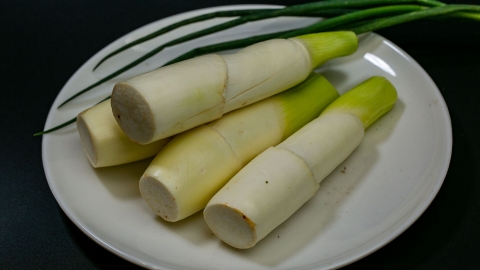Can patients with chronic nephritis eat water bamboo (Zizania latifolia)?
Patients with chronic nephritis can consume bamboo shoots in moderation when their kidney function and urine output are normal. However, bamboo shoots should be avoided when kidney function is impaired, urine output is low, or blood potassium levels are high. If any abnormalities occur, prompt medical attention is recommended. Detailed analysis is as follows:

For patients with chronic nephritis who have normal kidney function and urine output, moderate consumption of bamboo shoots does not impose a significant burden. Bamboo shoots are rich in vitamins, dietary fiber, and other nutrients. When prepared with light seasoning, they can provide essential nutrients to the body, help promote intestinal motility, and prevent constipation. At this stage, the kidney's metabolic function is still adequate to process the water and potassium content in bamboo shoots, making it unlikely to cause physical discomfort.
However, if patients with chronic nephritis develop impaired kidney function or oliguria (reduced urine output), the kidneys' ability to excrete water and potassium ions is weakened. Bamboo shoots contain a certain amount of water and potassium. Excessive consumption may increase the burden on the kidneys, leading to water and sodium retention, worsening edema, and potentially causing hyperkalemia, which can affect the function of the heart and nervous system. In such cases, excessive bamboo shoot consumption is not conducive to disease management or recovery.
Before consuming bamboo shoots, patients with chronic nephritis should consult their physician and, based on their individual kidney function, urine output, and blood potassium levels, strictly control the amount consumed. Bamboo shoots should be prepared with light seasoning to avoid increasing the burden on the kidneys.








